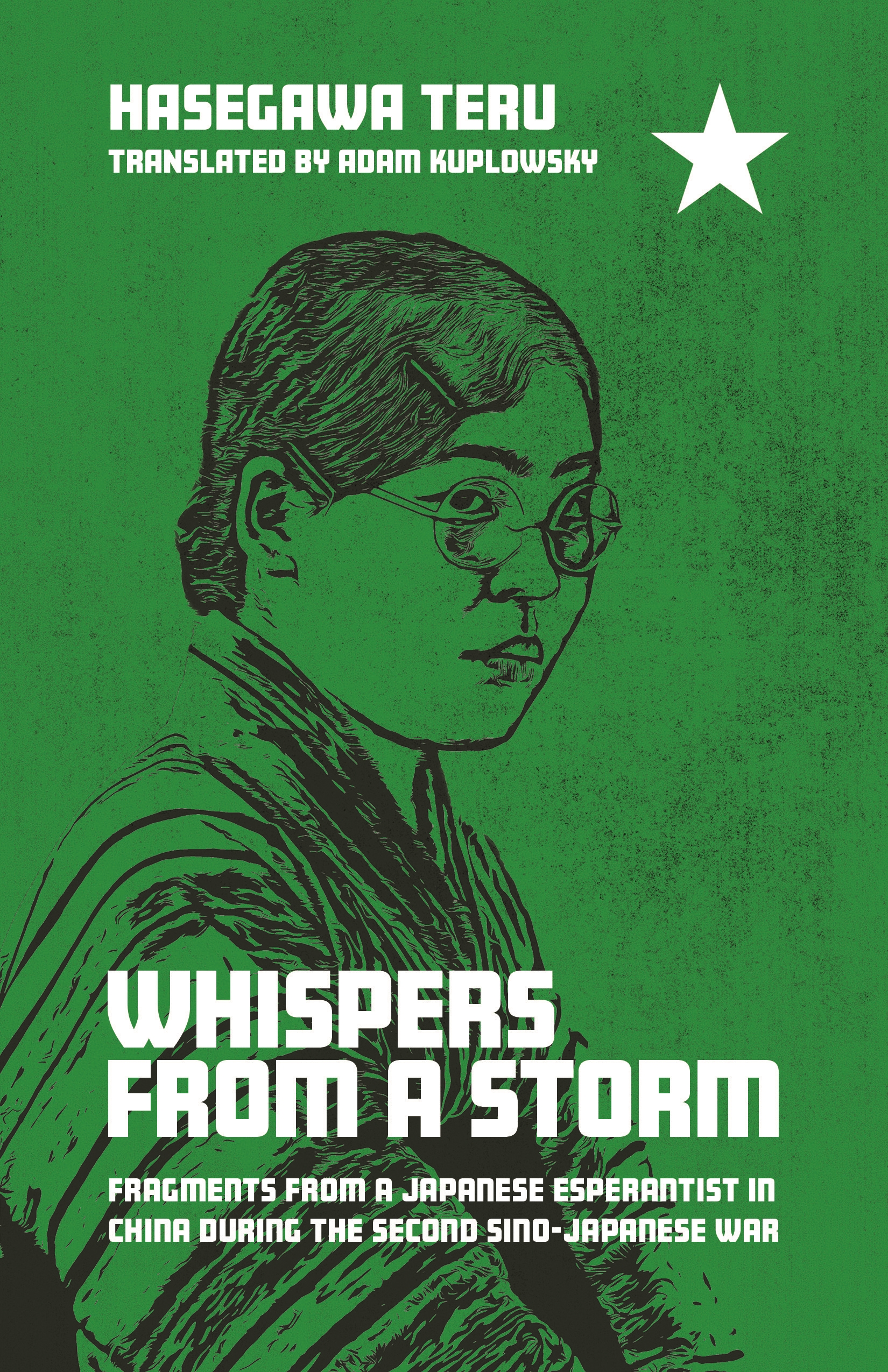Whispers from a Storm: Fragments from a Japanese Esperantist in China during the Second Sino-Japanese War
- About the Book
-
Whispers from a Storm is a collection of political writing by the Japanese human rights activist and Esperantist Hasegawa Teru (1912–1947). In 1937, the twenty-five-year-old Hasegawa sailed from her home in Nara for Shanghai to join the resistance movement against the Japanese Imperial Army’s invasion of China. Writing in Esperanto as Verda Majo, Hasegawa penned essays, open-letters, and reminiscences—stunning artefacts written with fire and pathos—for an international audience and translated here into English for the first time. Hasegawa’s work interrogates the nature of patriotism, solidarity, and justice in the face of fascism and is as relevant today as it was more than half a century ago. Chief among the works in this collection is Hasegawa’s unfinished autobiography, Inside Fighting China, an illuminating text that not only offers a rare glimpse into how women, refugees, and internationalists from all over China endured and rallied during a turbulent and bloody time, but also shines a light on one of Esperanto’s most creative and prolific periods.
Whispers from a Storm will introduce readers to an extraordinary figure of transnationalist history whose words will inspire and serve as a testament to the labor of the esperantoj, “those who hope.”
- About the Author(s)
-
Hasegawa Teru, Author
Under the nom de plume Verda Majo (Green May), Hasegawa Teru (1912–1947) wrote and published searing criticisms of Japan’s invasion of China in 1937 and its aftermath.Adam Kuplowsky, Translator
Adam Kuplowsky is a translator based in Toronto.
- Reviews and Endorsements
-
- Writing as Verda Majo, Hasegawa Teru (1912–1947) carried on a campaign of resistance against the imperialist forces of Japan, her homeland. Amidst the chaos of war and at times weighed down by pain and anguish, she held fast to the rightness of her convictions as a thinking person. It is to my great joy and admiration that her writing will at last reach English readers through this translation.
—Erika Kobayashi, author of Sunrise: Radiant Stories and Trinity, Trinity, Trinity - Esperanto was one of the most popular trends in Japan at the start of the twentieth century, exposing vital issues that defined cultural and intellectual life in the non-West. Kuplowsky’s skillful translation of the work of a remarkable ‘ordinary woman’ offers insights into the personal, political, and intellectual life of a Japanese Esperantist. It was Esperanto that enabled Teru to traverse hidden epistemic communities of anti-imperial resistance in Shanghai and beyond. The pieces translated here are an engrossing read and offer rich material to further our understanding of modern transnational intellectual history. They are a reminder of Esperanto’s capacious but overlooked linguistic response to Western modernity, invoking concerns pertinent to present-day crises.
—Sho Konishi, University of Oxford - Hasegawa’s critique of oppression and her advocacy for peace transcend the era of wartime Japan, reminding us of the power of speaking out against injustice. Kuplowsky’s translation preserves the lyrical beauty of her prose and deepens our understanding of transnational activism, feminist thought, and the lived experiences of wartime resistance.
—Edwin Michielsen, University of Hong Kong - Kuplowsky has given us a vivid and lively translation. Hasegawa Teru certainly deserves to be more widely known, and this book will introduce her at last to a wider, Anglophone readership.
—Ian Rapley, author of Green Star Japan: Esperanto and the International Language Question, 1880–1945 - This is a truly inspiring work by a courageous Esperantist and her search for justice and peace in interwar Asia. It will be an extremely valuable resource for teaching courses ranging from global history and peace and conflict studies to language justice.
—Lorraine Wong, University of Otago
- Writing as Verda Majo, Hasegawa Teru (1912–1947) carried on a campaign of resistance against the imperialist forces of Japan, her homeland. Amidst the chaos of war and at times weighed down by pain and anguish, she held fast to the rightness of her convictions as a thinking person. It is to my great joy and admiration that her writing will at last reach English readers through this translation.





